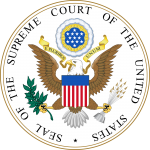 On April 6, 2015, the Centers for Medicare & Medicaid Services (“CMS”) released a proposed rule that would extend provisions of the Mental Health Parity and Addiction Equity Act of 2008 (the “Mental Health Parity Act”) to Medicaid managed care organizations (“MCOs”) and the Children’s Health Insurance Program (“CHIP”). The Mental Health Parity Act requires health plans that provide mental health and substance abuse disorder benefits to ensure that any financial requirements (e.g., co-pays, deductibles) and treatment limitations (e.g., limitations on visits) applicable to those benefits are no more restrictive than the requirements or limitations applied to medical/surgical benefits. The proposed rule was published in the Federal Register on April 10, 2015 at 80 Federal Register 19418. (Proposed rule). Comments to the proposed rule are due on June 9, 2015.
On April 6, 2015, the Centers for Medicare & Medicaid Services (“CMS”) released a proposed rule that would extend provisions of the Mental Health Parity and Addiction Equity Act of 2008 (the “Mental Health Parity Act”) to Medicaid managed care organizations (“MCOs”) and the Children’s Health Insurance Program (“CHIP”). The Mental Health Parity Act requires health plans that provide mental health and substance abuse disorder benefits to ensure that any financial requirements (e.g., co-pays, deductibles) and treatment limitations (e.g., limitations on visits) applicable to those benefits are no more restrictive than the requirements or limitations applied to medical/surgical benefits. The proposed rule was published in the Federal Register on April 10, 2015 at 80 Federal Register 19418. (Proposed rule). Comments to the proposed rule are due on June 9, 2015.
The proposed rule was drafted to ensure that all Medicaid beneficiaries who receive benefits through MCOs or under alternative benefit plans would have access to mental health and substance use disorders benefits regardless of whether they received those benefits through an MCO or another system. In addition, the proposed rule would also apply to CHIP, whether the care is provided through an MCO or a fee-for-service program.
Presently, a number of states that provide medical benefits through Medicaid MCOs carve out mental health and substance abuse services through other arrangements, which can include prepaid inpatient health plans (“PIHPs”), prepaid ambulatory health plans (“PAHPs”), or even fee-for-service. Under the proposed rule, states would continue to have flexibility in selecting different delivery systems to provide services to Medicaid beneficiaries, but would have to ensure that enrollees of a Medicaid MCOs receive the benefit of mental health and substance abuse parity when provided through these alternative models. States, for example, would be required under the proposed rule to include contract provisions requiring compliance with the Mental Health Parity Act in all applicable contracts with Medicaid MCOs and entities providing services through alternative arrangements such as PIHPs and PAHPs. Further, states would have to provide CMS with evidence of compliance with the Mental Health Parity Act in their provision of mental health and substance services to Medicaid beneficiaries.
In addition, the proposed rule would require Medicaid, MCOs, PIHPs, PAHPs and other alternative benefit plans to make their medical necessity criteria for mental health and substance abuse disorder benefits available to any enrollee or contracted provider upon request. Such Medicaid plans must also make available to enrollees the reason for any denial of reimbursement for services related to mental health and substance use disorder benefits.
For further information contact the author Gregory M. Fliszar (Philadelphia, PA) or other members of Cozen O’Connor’s healthcare team.




 Health care providers, insurers and all who handle information on their behalf were put on notice last week that cybersecurity must be a high priority for their organizations. Anthem, Inc. (“Anthem”), the nation’s second largest health insurer, revealed on February 4, 2015 that its information technology (“IT”) system was victimized by a “very sophisticated” cyberattack that exposed the birthdates, social security numbers, street and email addresses and employee data (including income information) of approximately 80 million customers and employees. Anthem noted that the hackers apparently did not get any health information or credit card numbers in the attack, but that the hack did yield medical information numbers. Anthem discovered the breach on its own on January 29th and contacted the FBI, which has started an investigation into the matter.
Health care providers, insurers and all who handle information on their behalf were put on notice last week that cybersecurity must be a high priority for their organizations. Anthem, Inc. (“Anthem”), the nation’s second largest health insurer, revealed on February 4, 2015 that its information technology (“IT”) system was victimized by a “very sophisticated” cyberattack that exposed the birthdates, social security numbers, street and email addresses and employee data (including income information) of approximately 80 million customers and employees. Anthem noted that the hackers apparently did not get any health information or credit card numbers in the attack, but that the hack did yield medical information numbers. Anthem discovered the breach on its own on January 29th and contacted the FBI, which has started an investigation into the matter.
 Justice Clarence Thomas and a unanimous US Supreme Court decided to vacate a Sixth Circuit decision and hold that the federal courts cannot assume from silence in a union’s collective bargain agreement that retiree group health insurance benefits continue indefinitely. The Supreme Court found that collective bargain agreements should be treated the same as other contracts when the principles are consistent with federal labor policy.
Justice Clarence Thomas and a unanimous US Supreme Court decided to vacate a Sixth Circuit decision and hold that the federal courts cannot assume from silence in a union’s collective bargain agreement that retiree group health insurance benefits continue indefinitely. The Supreme Court found that collective bargain agreements should be treated the same as other contracts when the principles are consistent with federal labor policy.
